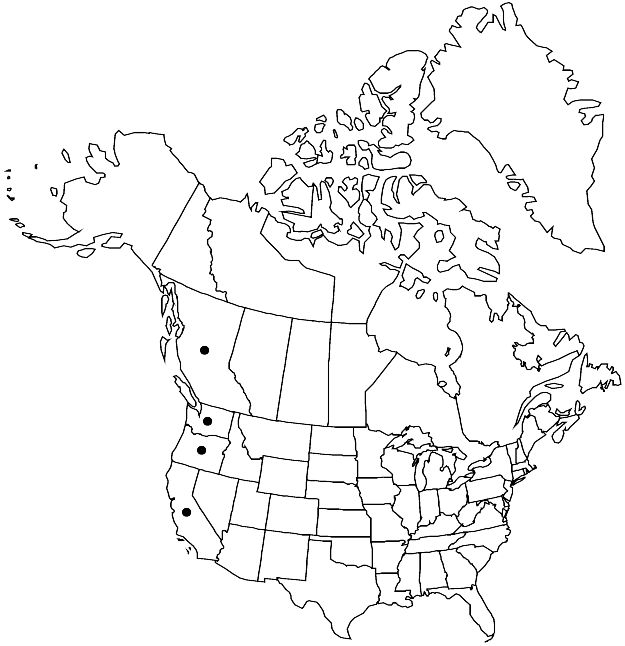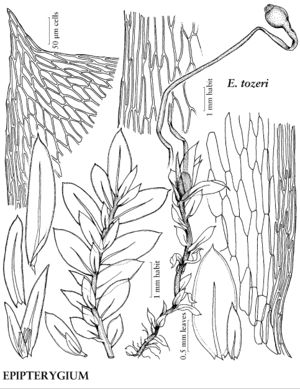Epipterygium tozeri
Öfvers. Kongl. Svenska Vetensk.-Akad. Förh. 21: 576. 1865.
Leaves loosely foliate, weakly differentiated in 1–3 dorsal rows and 2 or 3 lateral and ventral rows; dorsal leaves narrower; distal medial laminal cells 65–110 × 12–20 µm, walls thin. Capsule with endostome yellow to yellow-brown, basal membrane 1/2 exostome length or slightly longer, cilia long, nodulose. Spores 16–20 µm, finely roughened.
Phenology: Capsules mature spring (Apr–Jun).
Habitat: Disturbed clay or more humus-rich soil, wet, shaded banks along trails and streams, soil on upturned tree bases
Elevation: low elevations
Distribution

B.C., Calif., Oreg., Wash., Europe, Asia.
Discussion
Epipterygium tozeri is a characteristic species of soil banks in redwood forests of the Pacific coast. The soft pale bluish color is distinctive when plants are growing in well-developed turfs. Epipterygium tozeri can be distinguished from any Pohlia by the (sometimes subtle) complanate foliation with smaller dorsal than lateral and ventral leaves, broad, nearly elliptic leaves, weak costa ending about 2/3 up the leaf, and by marginal laminal cells differentiated from the medial as longer, narrower, and more thick-walled.
Selected References
None.
